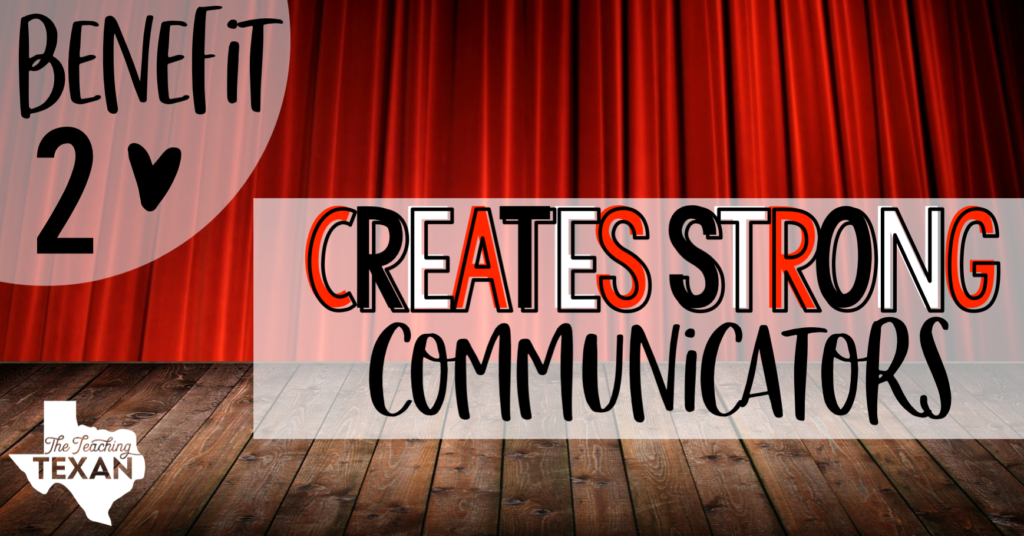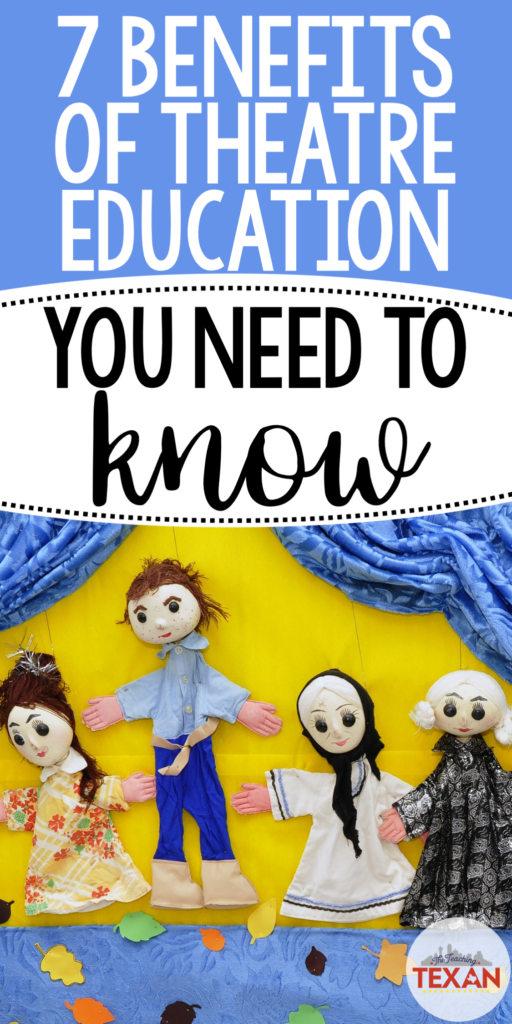7 Benefits of Theatre Education You Need to Know
Theatre education. WHAT is it? HOW do I incorporate it into my lesson plans? WHY is theatre important for kids and learning?
Hi everyone! My name is Caroline Cole and I’m thrilled to be guest blogging for The Teaching Texan this week. I am so grateful to Bryce for giving me a place to share a passion of mine – using theatre as a learning tool in the classroom. For many educators, incorporating theatre techniques as part of the curriculum can seem overwhelming, intimidating, and simply not worth the time and effort when there are so many other things that need to be done.

You may be thinking, “Caroline, I have enough to do already. And while I’m really organized thanks to my super cute Teaching Texan planner, click here, there are simply not enough hours during the school day to add any theatre activities.” I hear you. I do. But indulge me for the next few minutes and allow me to outline a few benefits theatre could bring to your classroom.

Teaches Empathy
Theatre techniques and activities ask students to walk a mile in someone else’s shoes, take the position of a new character and see things from another point of view. It is an excellent way to work on the skill (yes skill) of empathy in the classroom. This is an especially valuable skill to teach at the elementary level and will be with students for the rest of their lives.

Creates Strong Communicators
Another advantage to theatre is the communication students must practice to complete activities. Many exercises require eye contact (a challenge for many students) and clear communication that has countless benefits in other classroom activities, not to mention any future career.

Demands Creative Thinking and Problem Solving
Since we can’t predict the future our students will be living in, it’s becoming increasingly difficult to educate them for it. Here’s what we do know though—we’ll need creative thinkers and excellent problem solvers. That’s what theatre can help with, whatever field students end up in their careers.

Builds Teamwork and Collaboration
Theatre activities force students to collaborate and work together not unlike team sports do. This is beneficial for every student, especially those who aren’t particularly sports inclined.

Relieves Stress
Stress is becoming all too common even at a young age. Imagination is an excellent tool to combat stress. Allowing students to take a break from the real world and imagine themselves into a different situation can make all the difference not only in your classroom, but in their lives.

Ridiculously Low Cost
Unlike other arts programming, theatre requires ZERO supplies. Imagination and a clear floor space are all you need for most exercises.

Easy to Integrate
As I’ll be demonstrating in future posts (stay tuned!), you can integrate theatre activities in to practically any subject you already teach. It can be an excellent way to get your kinesthetic learners involved and keep those wriggle worms engaged.
Caroline Cole is a theatre educator, arts advocate, voice over actor and writer living and working in Dallas, TX. She is obsessed with telling stories in any way she can and believes strongly that storytelling is a superpower both children and adults should harness and use. Caroline holds a graduate degree in theatre education from the University of Northern Colorado and an undergraduate degree in English literature and theatre from Rice University. Find her online @carolinecolestories on Instagram and @ccolestories on Twitter.


It’s great that you talked about theatre and how it teaches teamwork skills. The other day, my younger sister said she wants to participate in an extracurricular activity but wasn’t sure about which one to choose, so I think she’d love to read your article. Thanks for the information on how theatre activities could help shape young minds.